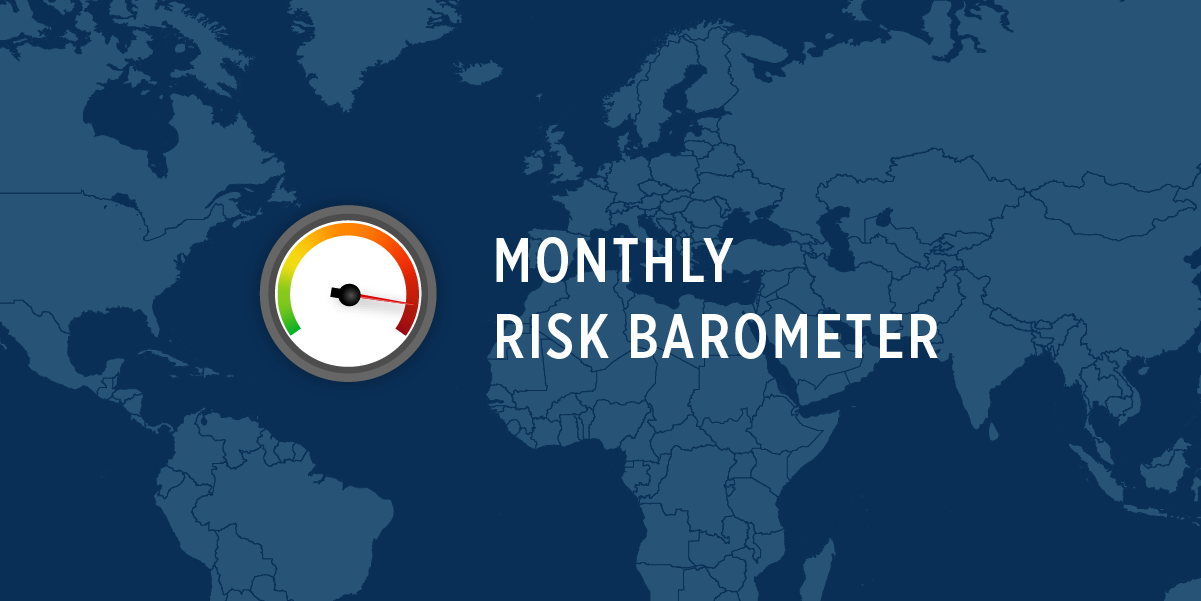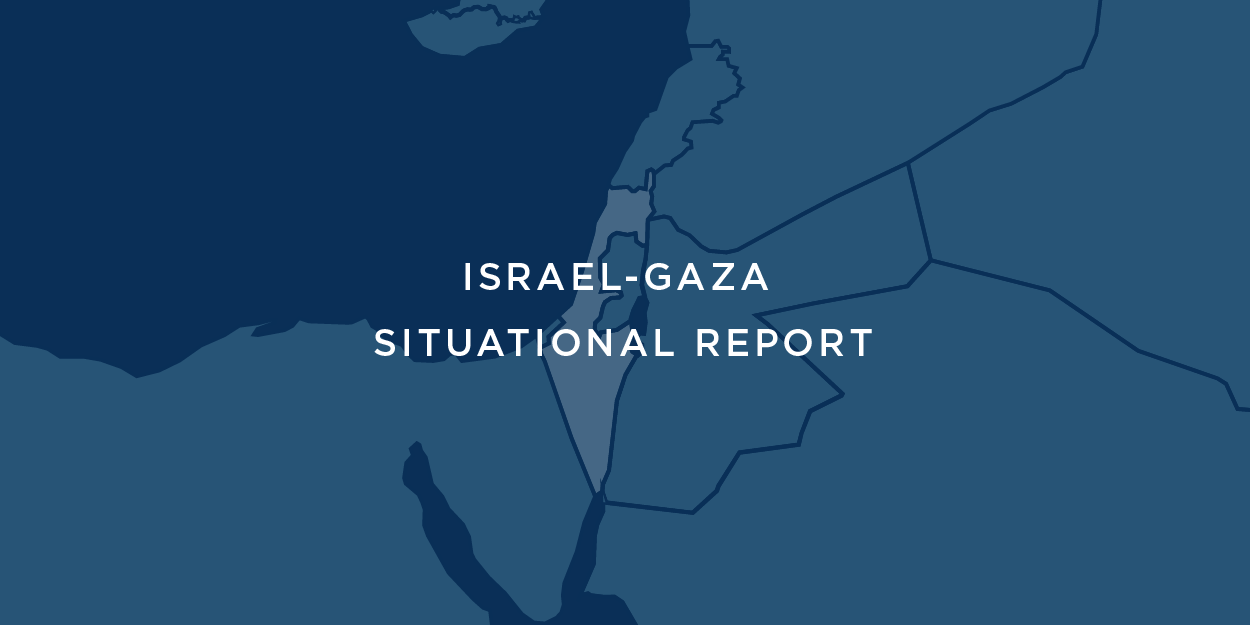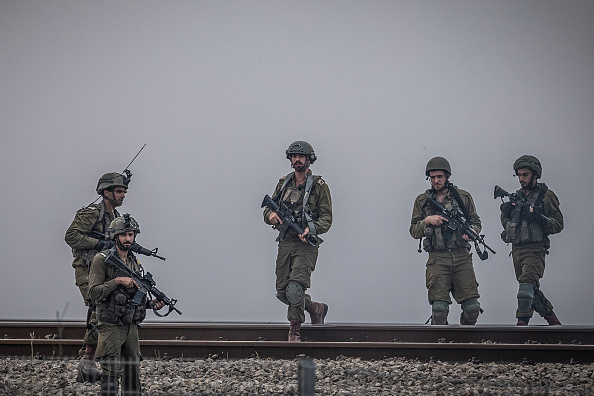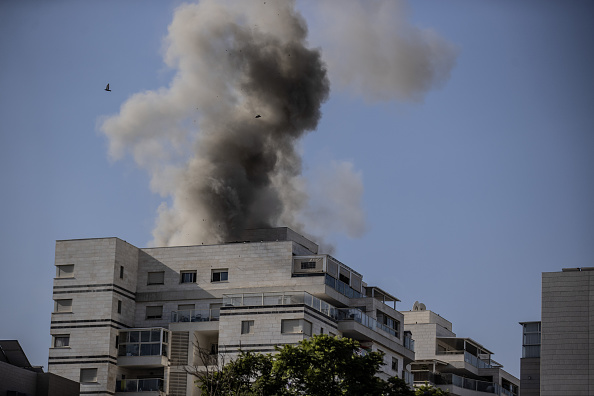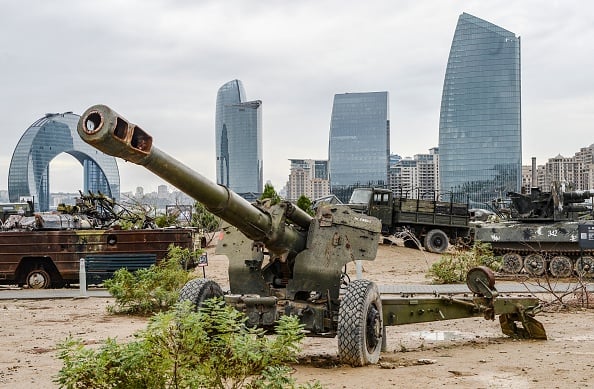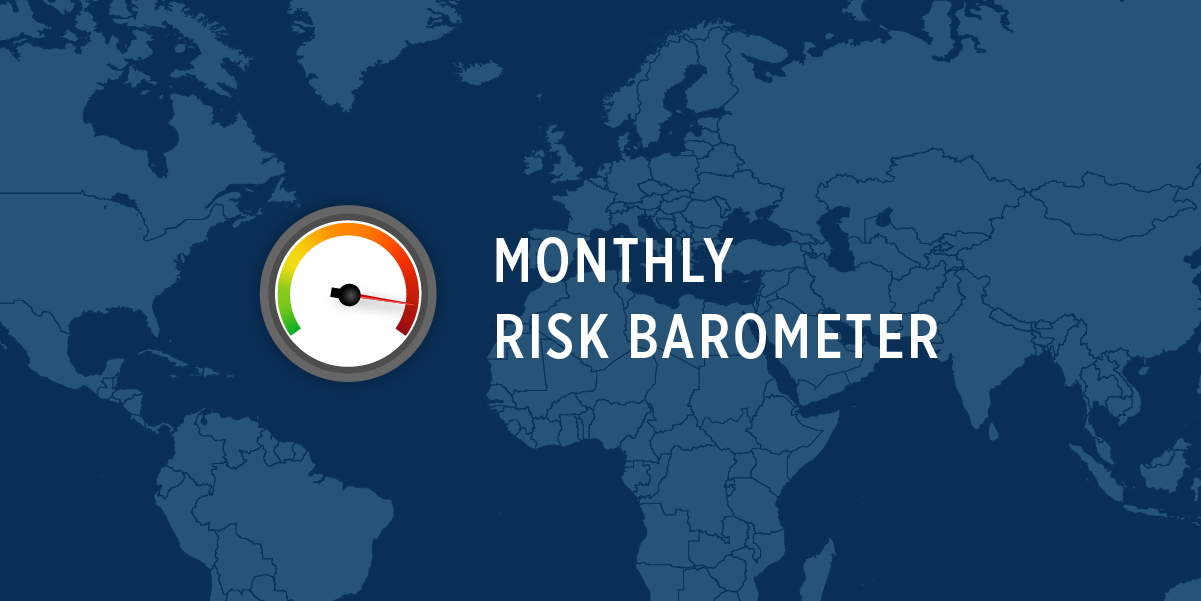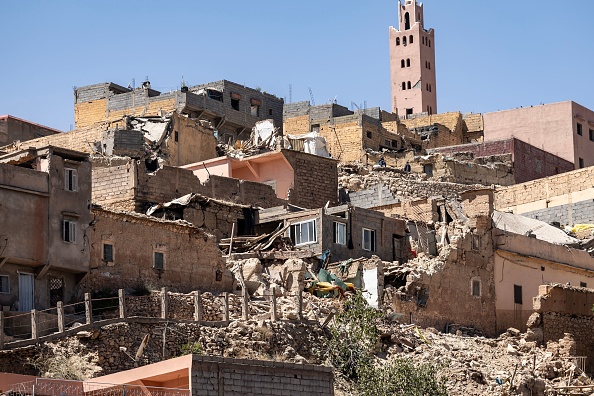Middle East | Senegal
In Global Guardian's monthly Risk Barometer, our Intelligence Team highlights current global hotspots with the potential to impact your business operations and travel. Read below for analysis on the threats we are closely monitoring this month and click here to subscribe for regular intelligence updates.
Middle East Conflagration
On 02 February 2024, the United States (U.S.) conducted a significant retaliatory operation against Iranian-backed militias across Syria and Iraq following the 28 January 2024 drone assault on the Tower 22 base in northern Jordan, which killed three U.S. soldiers and injured over three dozen. On 07 February, two senior Kataib Hezbollah officers, believed to be responsible for the Tower 22 attack, were killed in a U.S. airstrike. While there appears to be a mutual reluctance in both Washington and Tehran to further escalate, without any realistic off-ramps, the situation in the Middle East is primed to deteriorate.
The strike targeted over 85 Islamic Revolutionary Guards Corps Quds Force (IRGC-QF) and Iranian-backed militia sites across Iraq and Syria. Targets included command and control centers, intelligence operations, arms storage, and logistics chains for munitions. Reports indicate that in advance of America’s strike, many IRGC-QF leaders in Syria departed back to Iran. While the strikes were limited in effect, Iran itself announced zero casualties, signaling that it does not seek to escalate. Since 07 October, U.S. forces have been attacked in Iraq and Syria on over 170 occasions, resulting in around 150 casualties of varying severity.
Meanwhile, the situation in the Red Sea has not improved since the onset of the U.S.-led Operation Prosperity Guardian on 18 December 2023. Over 53 merchant vessels have been attacked by the Houthis via missiles, unmanned vehicles, and gunboats, along with attempted and successful hijackings. On 31 January 2024, the USS Gravely shot down a Houthi anti-ship cruise missile at a very close range of a mile (1.6 km) with its close-in weapon system after the missiles eluded the naval task force’s other defense systems. This near-miss exemplifies the escalation risks present in the current status quo.
The Israel-Hamas conflict is ongoing, as Hamas’ responses to Israel’s ceasefire proposals are non-starters. Israel claims to have eliminated 17/24 of Hamas’ combat battalions with much of its remaining forces situated in Rafah, along the Egypt-Gaza border. Operations in Rafah will be the next phase of the war and will likely lead to escalatory steps by members of the Iranian “Axis of Resistance” to delay Israel from achieving its military objectives. To the north, Israel and Hezbollah continue to trade blows as time runs out on a diplomatic solution to create a buffer zone between the belligerents. With over 80,000 Israelis and tens of thousands of Lebanese displaced due to the fire exchanges, the current situation is unsustainable.
- Global Guardian recommends against non-essential travel to Iraq.
- Firms with travelers going to and from Israel, or the Gulf states should build contingency plans for an escalation of hostilities.
- So long as the Israel-Hamas War continues, Iranian-backed forces in the region will continue their attacks on U.S. forces and international shipping in the Red Sea.
- A high intensity conflict between Israel and Hezbollah in Lebanon is becoming more and more likely.
Analysis
The U.S. retaliation was highly performative, after telegraphing its moves and providing five days of lead time for Iran to relocate its important assets to safety. The strikes aimed to reestablish deterrence without prompting a wider conflict. And while the U.S. succeeded in temporarily preventing the onset of a higher intensity regional conflict, deterrence has not been restored. Operation Prosperity Guardian has failed to protect the Red Sea shipping lane and U.S. forces continue to face daily attacks in Iraq and Syria. Absent of utilizing ground forces, the Houthis will continue to be able to target shipping.
So far, it seems as though the current U.S. administration is doing everything possible to prevent a broader war in the midst of an election cycle, an objective well understood by the Iranians. To this end, the U.S., through a combination of diplomacy and behind the scenes pressure, is attempting to prevent a more open conflict between Israel and Hezbollah, halt, end, or limit the war in Gaza; push Saudi normalization with Israel; keep the sea lanes open; and maintain a military presence in hostile Syria and Iraq. The Biden administration is locked in a no-win situation. None of its goals appear to be achievable at present, which may lead to a policy shift as the election campaign ramps up. Addressing Iran’s nuclear program, and forcibly pushing back on its regional proxies, will be left for the next administration.
Escalation Triggers
- Additional U.S. service members are killed in action, or a naval vessel is successfully struck
- U.S. attacks Iranian spy ships in the Red Sea (MV Saviz or MV Behshad)
- Houthis sink a merchant vessel or destroy undersea cables in the Red Sea
- Iran sinks an oil tanker transiting the Hormuz Strait
- U.S. kills a high ranking IRGC officer in Iraq or Syria
- U.S. attacks targets on Iranian soil
- Hezbollah-Israel conflict reaches full-scale war
- U.S. embassy in Iraq is besieged
De-Escalation Paths
- Israel-Hamas Ceasefire
- Israel-Lebanon buffer zone agreement
Looking Forward
Without direct control over most of the escalation or de-escalation paths, the U.S. has little ability to influence the outcomes on the ground making the status quo precarious. The only winner from the current situation is Iran, who will continue to work towards its two goals of ousting the U.S. from the region and actively fighting Israel with its proxies. It is clear that Iran does not seek to engage directly with the U.S., but it is satisfied with gradually upping the ante. Every missile, drone, or rocket attack is an intrinsic success, as the Axis of Resistance has a larger stockpile of offensive munitions than the U.S. has interceptors that are far more costly and slow to produce. The probability of regional escalation increases every day, as every attack on U.S. assets or merchant ships carries the potential of hitting its mark as did the 02 February attack. Following the October 7th Massacre, Israel is unlikely to make any large concessions that jeopardize its security, and Hamas’ leaders, while they are still safe underground, are hoping that Israel will be pressured to cease its campaign so it can claim victory.
The best-case scenario involves Israel claiming a military victory much sooner than expected and ceasing intensive operations, which in turn, could lead to regional deconfliction measures. An end to the fighting in Gaza would remove the legitimacy from the current posture of Iran and its proxies.
The worst-case scenario involves a full-scale war between Israel and Hezbollah which would lead to extreme levels of destruction in Lebanon and Israel and would see even more lethal attacks on U.S. forces in the region. Alternatively, a more gradual path to open regional conflict could start with another lethal attack on U.S. assets which prompts a more robust American response that kills high ranking IRGC assets. This tit-for-tat scenario would require one party to lose face to deescalate, a challenge in the best of times let alone an election year.
Key TakeawaysThe current regional conflagration began in Gaza and can only end there. Iran and its proxies are leveraging the upcoming U.S. election, as the U.S. administration has made it clear that it wants to avert a wider war. Despite the fact that neither the U.S. nor Iran wants to initiate an open conflict, no off-ramps are within reach for now. Further American deaths or an intensification of the Israel-Hezbollah conflict — two realistic outcomes — could engender a wider regional war. |
Constitutional Crisis in Senegal
On 03 February 2024, Senegalese President Macky Sall postponed presidential elections slated for later this month prompting the country’s first constitutional crisis since gaining its independence from France. The election is now slated for December 2024, effectively extending Sall’s time in office into early 2025. Sall’s move — touted by the opposition as a constitutional coup d’etat — has sparked unrest and cast doubts on the stability of West Africa’s most robust democracy.
Current Situation
Hundreds of protesters took to the streets in Dakar and other cities throughout Senegal in opposition to the electoral delay on 03 February 2024. Protesters gathered in front of the parliament building before being dispersed by gendarmes using tear gas. The government has severely restricted mobile internet access and shut down at least one television channel for its coverage of the protests.
Previous protests involved the use of live fire by security forces, and at least 56 people have been killed in political unrest since 2021. In July of 2023 widespread unrest led to substantial property damage, economic disruptions, and dozens of fatalities. This bout of protests is not likely to reach the same level as those of July.
The Senegal’s Doctor’s Union has announced a forty-eight-hour strike (excluding emergency procedures) starting 05 February 2024. More strikes, possibly affecting transportation and other essential services, may be announced in the coming days. While the immediate possibility of large-scale unrest has abated for now, the latent friction between the ruling and opposition factions leaves the door open for future conflagrations.
- Global Guardian recommends avoiding non-essential travel to Senegal at this time.
- We recommend using pre-travel intelligence and monitoring for any travel to Senegal.
- Avoid all protests and concentrations of security forces. Anticipate heightened security and associated disruptions at all official sites throughout the capital.
- We recommend low-profile secure transportation with security personnel for any essential travel to or within Senegal.
- Firms with personnel traveling to Senegal should contingency plan for evacuation in case of medical emergencies or a deterioration of the security situation.
Analysis
Senegal’s democracy, traditionally a bastion of stability in a region plagued by military coups, has suffered a series of blows as incumbent president Macky Sall approaches the end of his legal tenure. The election delay — only passed after opposition parliamentarians were forcibly expelled from the national assembly — is just the latest in a series of antidemocratic moves. Despite flirting with the idea, Sall has ruled out running for an unconstitutional third term. Instead, Sall’s party Alliance Pour La Republique (APR), has placed its hopes in the candidacy of current prime minister Amadou Ba. APR has made every effort to secure Ba’s path to the presidency — despite his poor polling — through a judicial campaign aimed at disqualifying the opposition.
Sall, president since 2012, represents the Dakar establishment. He is opposed by a large constituency of primarily young and unemployed Senegalese citizens who feel they have been excluded from economic opportunity and view the establishment as corrupt and too close to France. The main opposition figure, Ousmane Sonko of the PASTEF party, has secured a large and enthusiastic following amongst Senegal’s youth for his outspoken anti-corruption, anti-imperialist, and anti-establishment rhetoric. Sonko was barred from running in the now-delayed election on charges of defamation and is currently in prison serving a six-month term for charges of inciting violence against the state. Despite its dissolution amidst deadly unrest last July, Sonko’s party PASTEF has militated for the election of Bassirou Diomaye Faye. Faye is also incarcerated, but his candidacy was approved by the electoral commission. If the election were held as scheduled, polling suggests that Faye could have won in the first round.
A loss by Macky Sall’s establishment coalition would open Sall and his coterie to investigation and prosecution for several charges ranging from corruption to abuse of office. If the opposition gains power over the executive and judiciary, these charges would almost certainly result in convictions. Sall’s move to delay the election makes sense, in this context, as a way to buy time and maneuver into a more favorable electoral landscape. The delay also extends his final term in office by nearly a year.
Implications
The less-than-transparent political maneuvering of the incumbent party, weaponization of the justice system against political opponents, utilization of internet and media blackouts, and heavy-handed crackdown on public opposition by force paint a picture of a democracy in regress. Senegal has never had a military coup, but on its present trajectory the possibility of a departure from its celebrated democratic tradition looms on the horizon. Even if Senegal does not go down the same road as its neighbors Burkina Faso, Mali, and Niger, the loss of its democratic credibility is a blow to stability throughout the region. Senegal has been a major pillar of the Economic Community of West African States (ECOWAS) a regional bloc that has sought to restrain the trend towards military coups. ECOWAS has called on Senegal to return to the original election timeline.
Key TakeawaysThe current crisis in Senegal is unprecedented and represents a crossroads for democracy and stability in both Senegal and the region generally. The roots of the crisis — socio-economic inequality inflamed by anti-imperialist rhetoric, and the political exclusion of major segments of the population — are common to several other West African countries including Ghana, Cote d’Ivoire, and Nigeria. Senegal’s inability to resolve these tensions does not portend well for the future of others in the region. While a precipitous decline in the security situation is not likely, it is certainly possible. |

